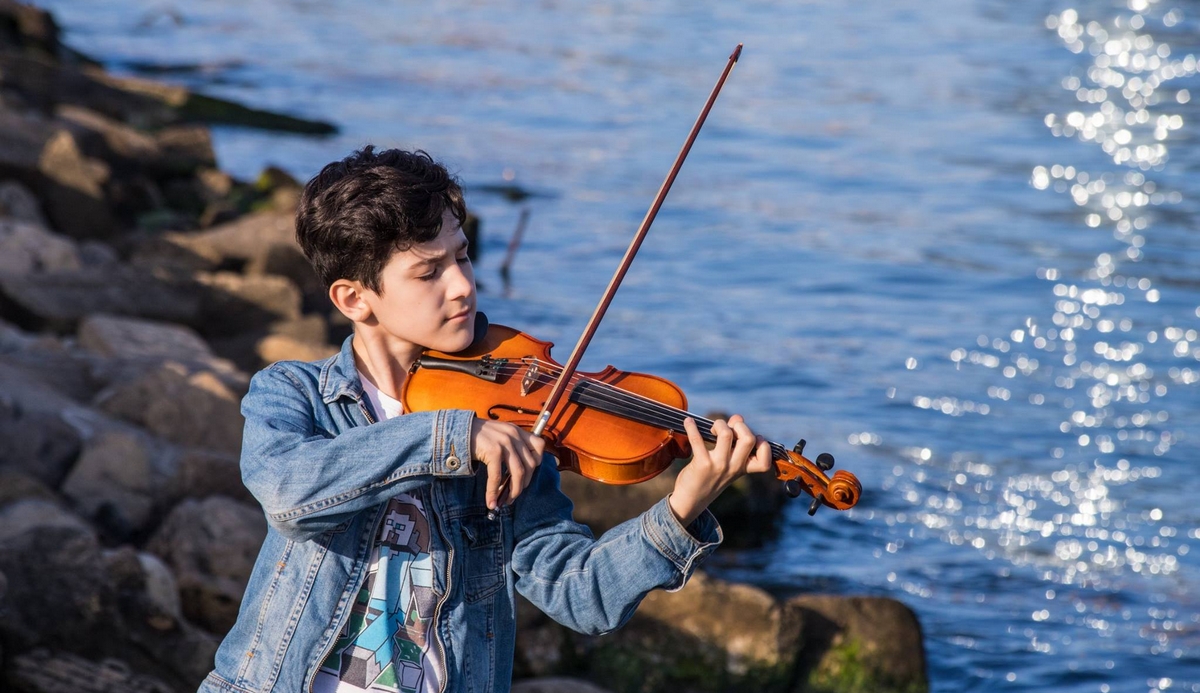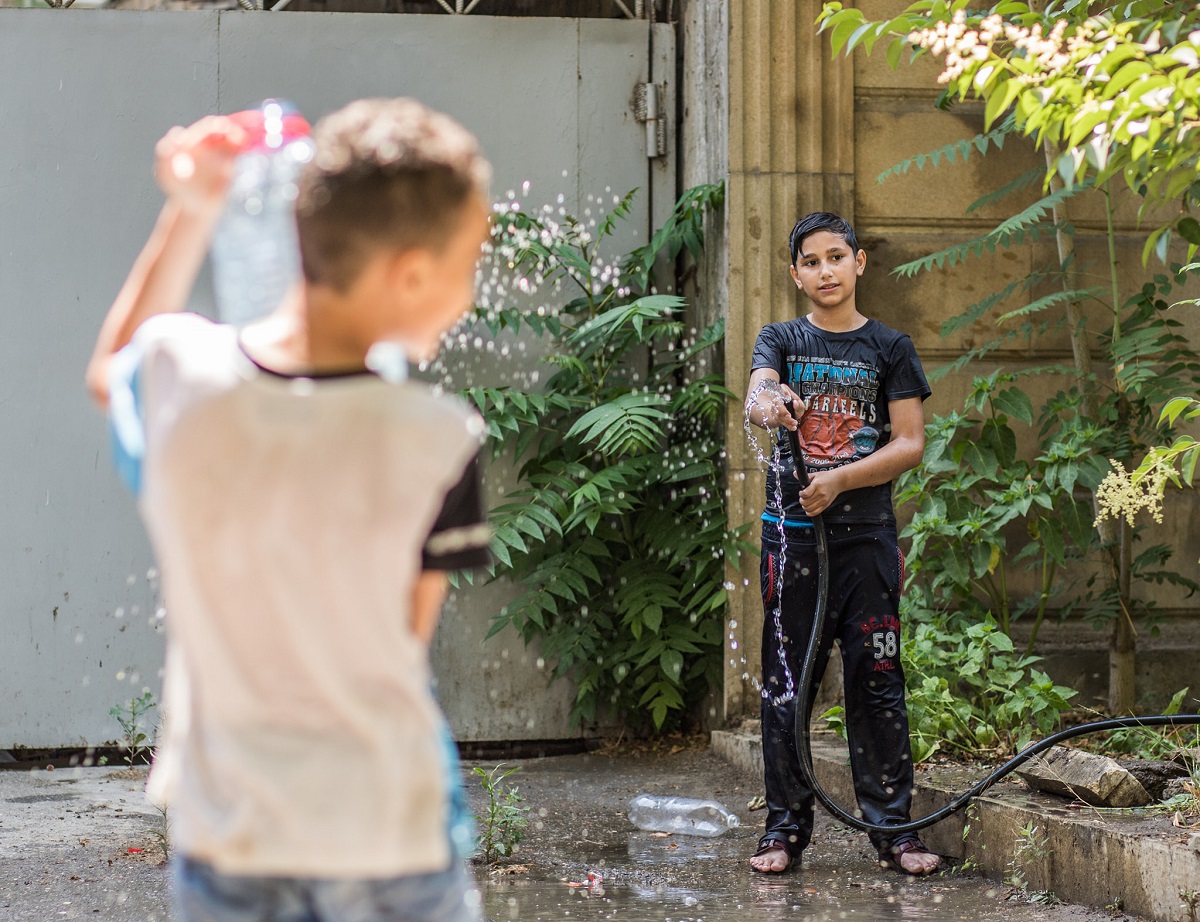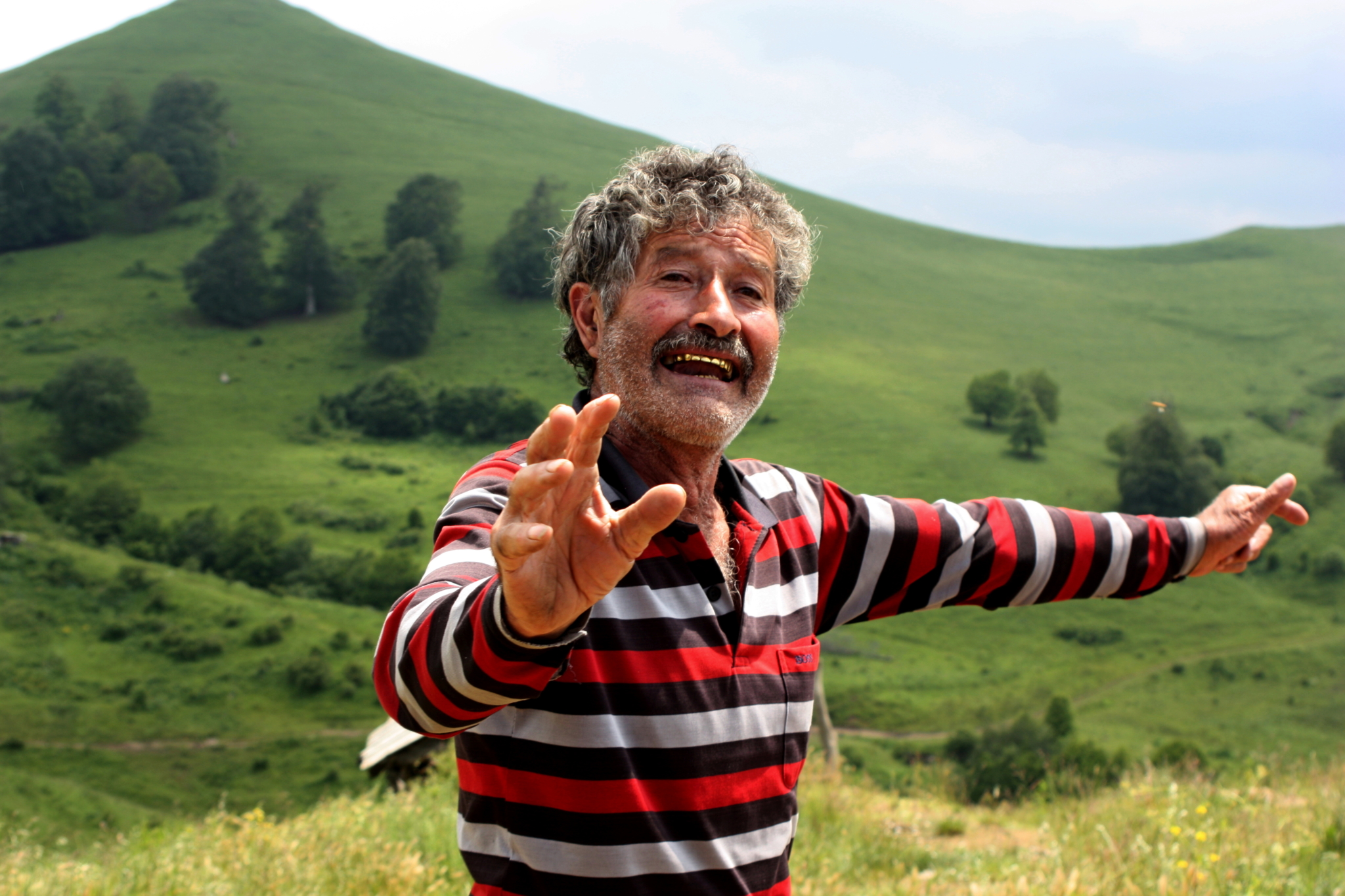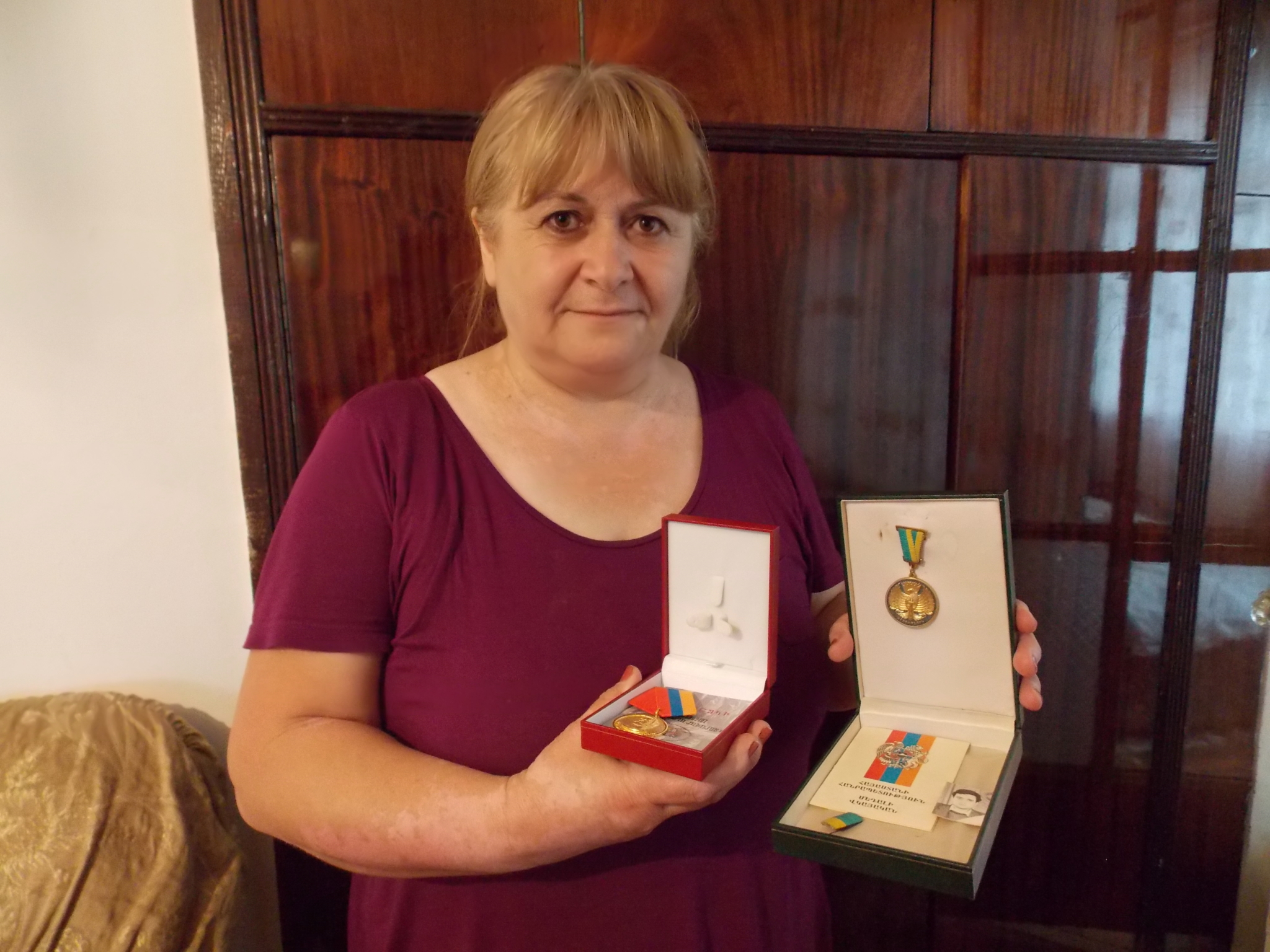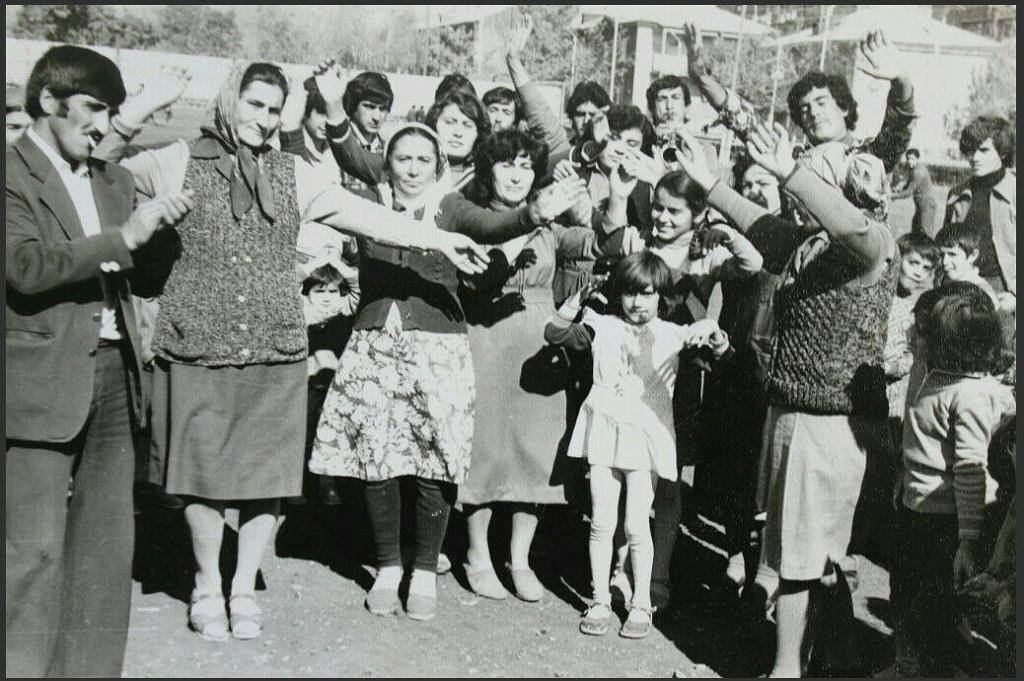The Nagorny Karabakh Conflict on the Azerbaijani Stage
In one of our earlier articles, we looked at War as reflected in the mirror of film and literature. This time around, War is on the stage, attempting to catch its own reflection in the eyes of the audience.
In Azerbaijani theatre, the theme of the Nagorny Karabakh conflict is noticeably less prevalent than in cinema. There are far fewer plays dealing with issues of war and conflict than there are films.
Plays dealing with Nagorny Karabakh might often be timed to coincide with the anniversaries of various tragic events. The premiere of the play ‘Shame’, for instance, held in Baku’s Drama Theatre on 26 February 2015, marked the anniversary of the massacre in the Azerbaijani town of Khojaly.
The main focus of the play is perhaps not so much the war itself, as the lives of two brothers in arms. After losing touch following the war, the two men meet, many years later.
Another play that looks at the post-war lives of people who have come face to face with conflict is ‘The Train to Nowhere’. Staged at the Baku Theatre of Young Spectators by director Bakhram Osmanov, the production is based on a play of the same name by Ali Amirli.
Following the lives of refugees from Nagorny Karabakh, it tells the story of their long journey into the complete unknown that is to greet them in Baku.



Photo: medeniyyet.az
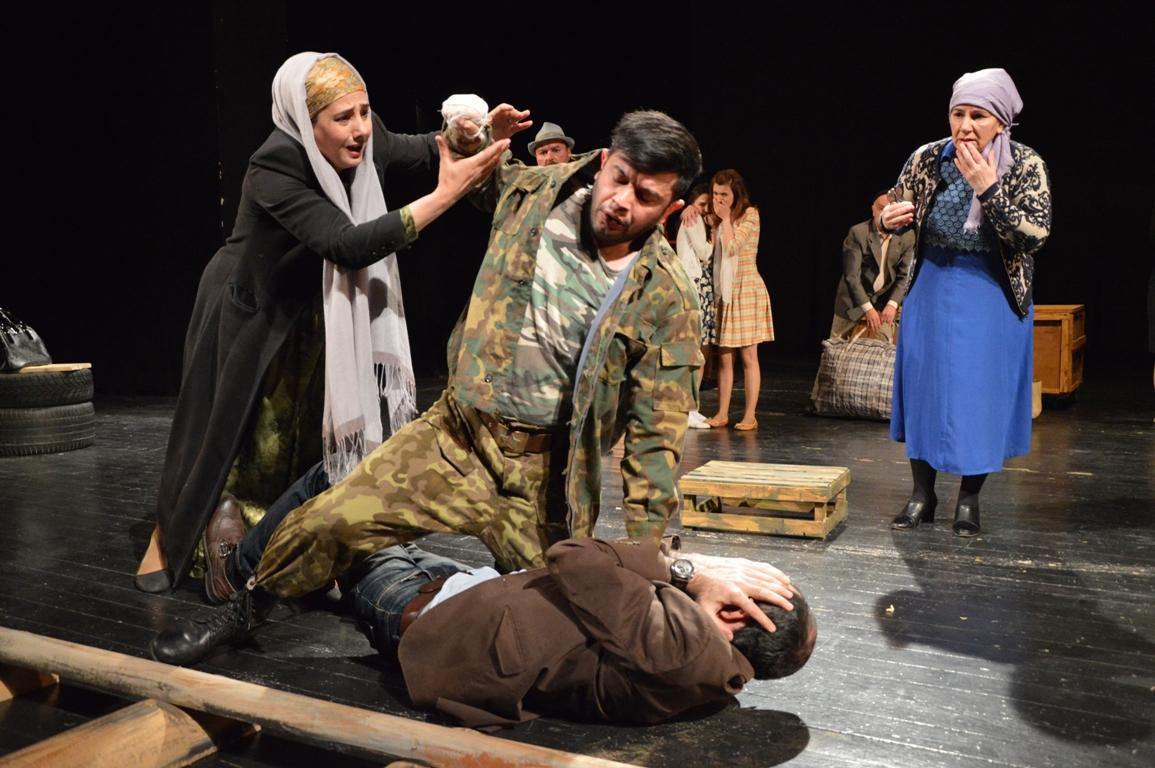
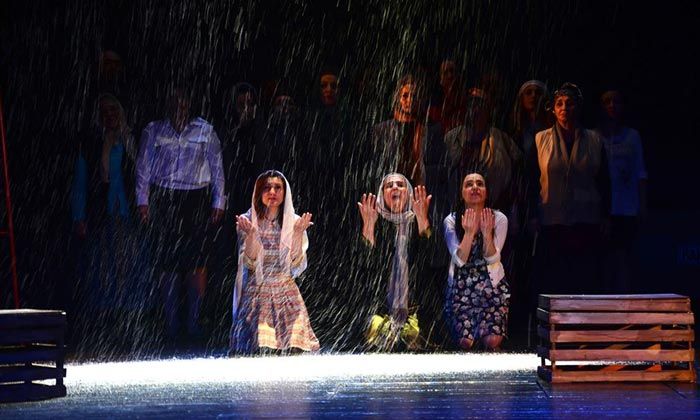
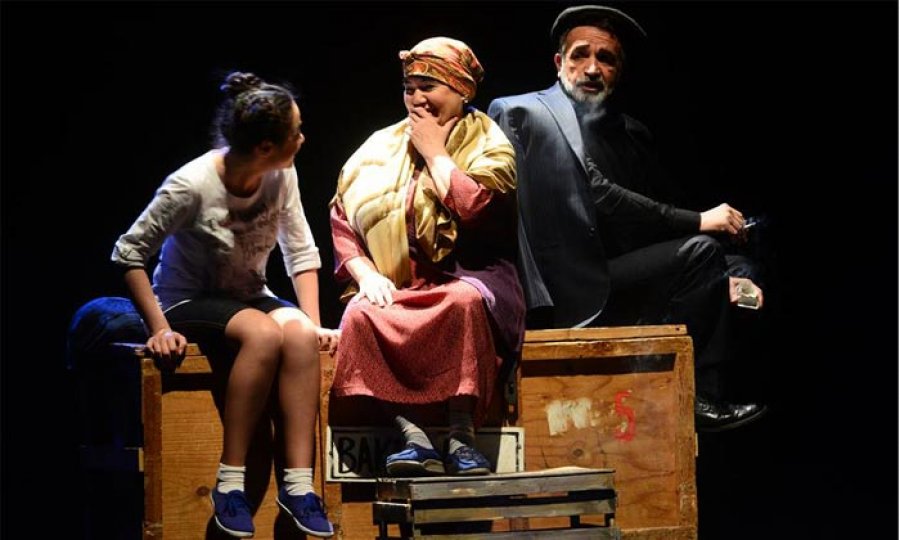
Using a classic method virtually guaranteed to bring success, the play features a multitude of diverse characters forced to interact in a confined space and faced with a critical situation. Unveiling many mysteries, the crisis also shows the true nature of the characters. This was perhaps what the director had in mind when he described his production as a ‘drama of truths’.
Other directors prefer to address the current Nagorny Karabakh conflict indirectly. By offering historic parallels, they approach the topic in a more gradual manner.
Based on ‘The Ruler and His Daughter’, a work by Ilyas Efendiev, the play ‘Karabakhname’, for instance, was put on by the Drama Theatre not merely out of respect for the well-known Azerbaijani playwright.



Photo: azdrama.az
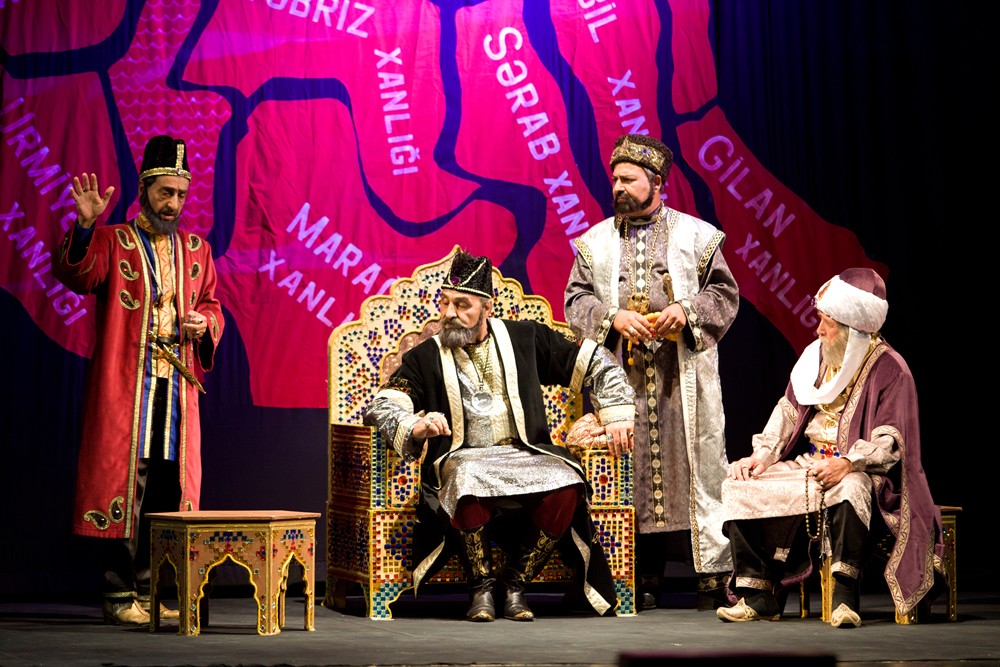

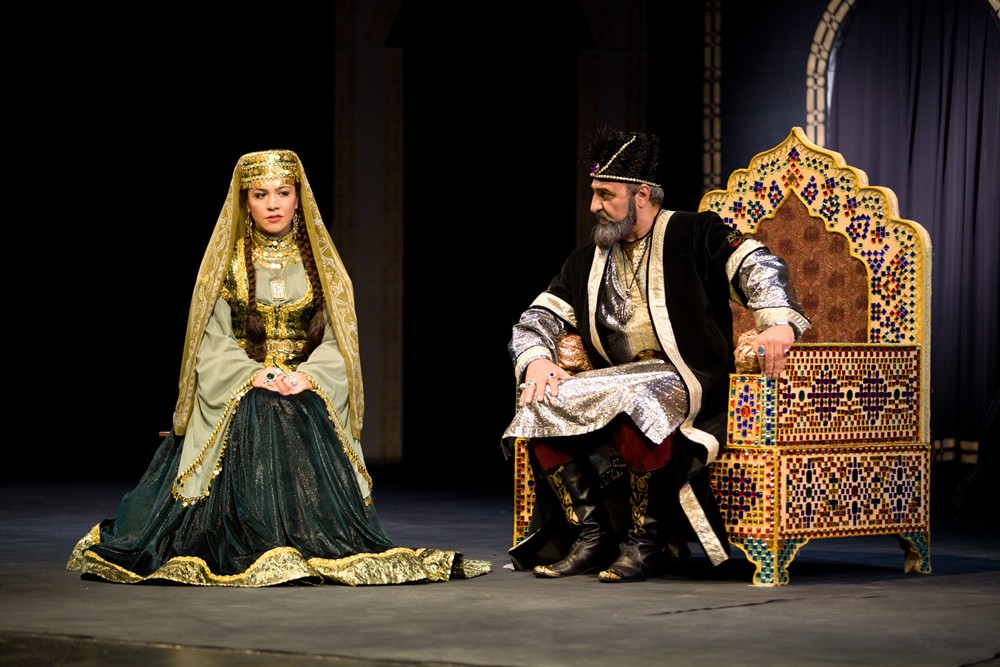
The action takes place in the eighteenth century, yet the message is clear: even 200 years ago, this long-suffering region was riven by conflict. The main character, former Karabakh ruler Ibrahim Khalil Khan falls victim to the intrigues of his Armenian enemies.
Frequently staged in Azerbaijan, the play is popular. It was also made into a film, ‘The Fate of a King’. Ilyas Efendiev is of course considered to be one of Azerbaijan’s finest authors, and his plays and novels are staged on a very regular basis. Nonetheless, the popularity of this work is without doubt due in part to its focus on the history of Nagorny Karabakh.
History aside, however, the events of 2016 sadly produced a whole range of new material for playwrights and directors.
This is neither heaven, nor hell. A (very desolate) place beyond space and time, outside the limits of earthly reality. Immediately after they die, the souls of Azerbaijani soldiers killed in April 2016 are transported here, to meet those of their brothers in arms who fell in Nagorny Karabakh in the 1990s.
In April 2017, the Theatre of Young Spectators held the premiere of the play ‘Interrupted…’ The opening coincided with the anniversary of the Four-Day War. To this day, the production is the most acclaimed of all the plays dealing with the conflict in Nagorny Karabakh. Based on Leyla Begim and Efim Abramov’s play ‘The Dreaming Boys’, it is dedicated to all the heroes who lost their lives in Nagorny Karabakh. The main character is the young sculptor Samir Kachayev, who died during the April war. We wrote about him in one of our previous articles.


Photo: trend.az
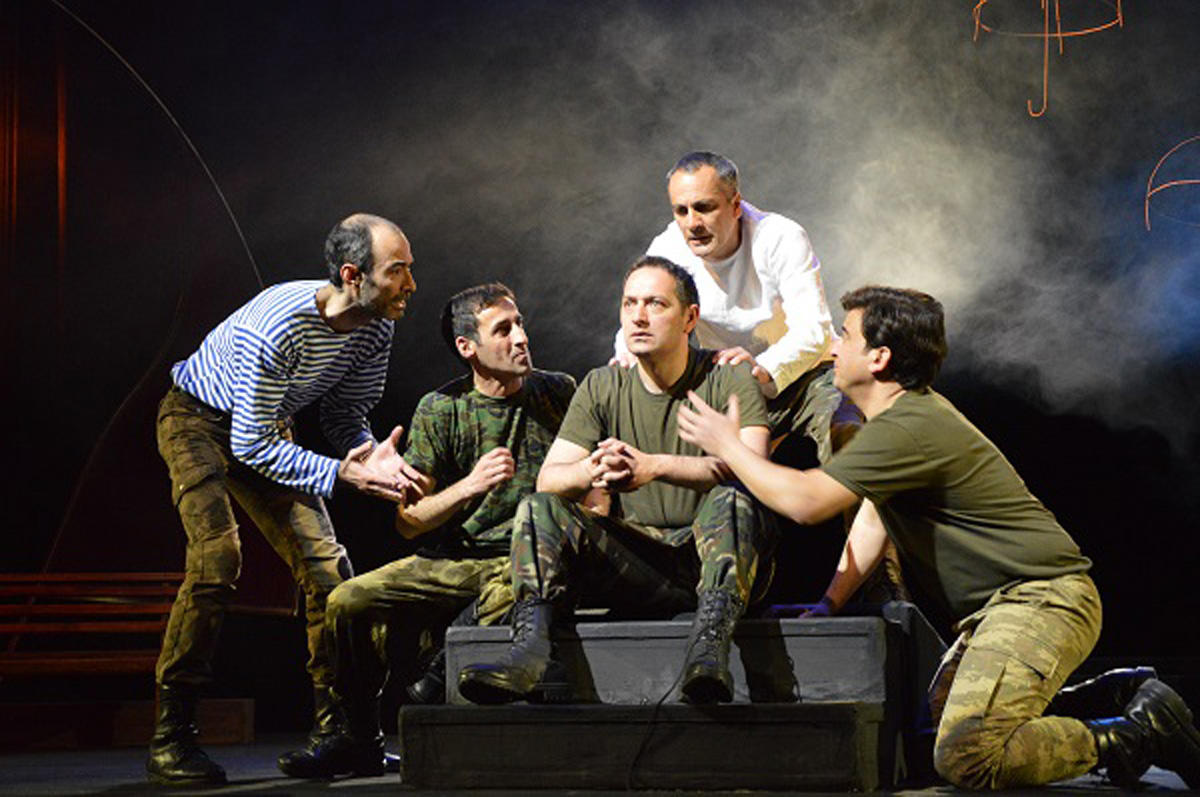
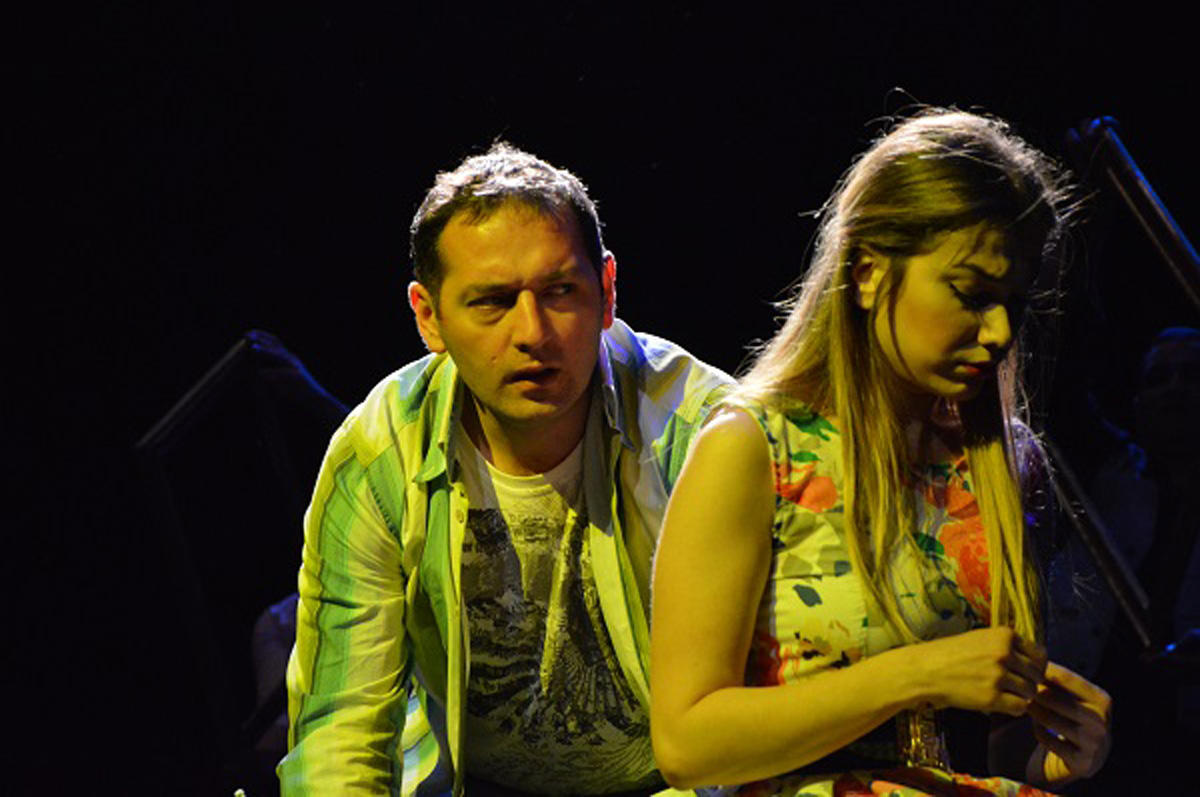
It all began with a poem by Leyla Begim, an Azerbaijani poet and playwright living in Prague. In April 2016, she and her Israeli co-author Efim Abramov were working on a play together when the violence broke out in Nagorny Karabakh.
‘The news of the death of the talented young architect affected me profoundly. I wrote a poem and posted it on social media, but still I could not rest.
I called Efim and told him I couldn’t work on anything else. I suggested that we write a play to honour Samir and all the heroes who fell in Nagorny Karabakh. At first, Efim refused, saying that patriotic themes were not his thing at all. That’s a trait he and I share, actually – we both dislike pathos. So I told him I would do it by myself. A couple of hours later though, he phoned me back, and said he would do it.’
The original play the two authors had been working on was never finished, but over the following ten days, they wrote ‘The Dreaming Boys’. Abramov suggested to his good friend Vagif Asadov, Director at the Theatre of Young Spectators, that he might like to stage it. Asadov, incidentally, also disliked pathos.
‘Working with patriotic themes in general, and the theme of Nagorny Karabakh in particular, is like making your way along a narrow, rickety bridge. One step to the right, and you end up with patriotic pathos. One step to the left, and you have primitive hysterical lamenting. I’m not a big fan of either.
But somehow, the play drew me in, it was so original. After reading it, I couldn’t sleep at all – I twisted and turned all night. The next morning, I turned up at the Ministry of Culture. ‘What’s up with you?’ they asked me there. ‘Your eyes are suspiciously bright!’
What gives the play the originality the director mentions is that it portrays history not only through the eyes of the living, but also through those of the dead. The fallen soldiers reminisce about their lives, they miss their wives and parents, argue and make jokes. Altogether, they behave more like living people than spirits: people who have not yet quite accepted that they have been killed. Their reminiscences form a story criss-crossed with several romances, all of which are rudely interrupted by war.
‘I decided to change the title of the play, because I felt that it deals with far more than the deaths of some young dreamers. The deaths of those lads, just like the deaths of the other soldiers who were killed in Nagorny Karabakh in the 1990s, did not merely interrupt their own lives – they also became crucial turning points in the lives of their loved ones. “He was just about to get married in September!” the hero exclaims, lamenting the death of his friend. “Everyone was about to do something,” a soldier killed in the 1990s replies. That line made me decide to rename the play and call it “Interrupted…” Interrupted life, interrupted love, and many, many other things… all interrupted.’
Director and actors alike recall the three months that they spent working on the play as utter hell. The stress of going over scenes of losing their loved ones and passages in which they themselves were dead, time and time again, took a huge toll. ‘We should have an ambulance on duty outside the theatre on opening night, in case one of us really does lose it,’ the actors would joke.











